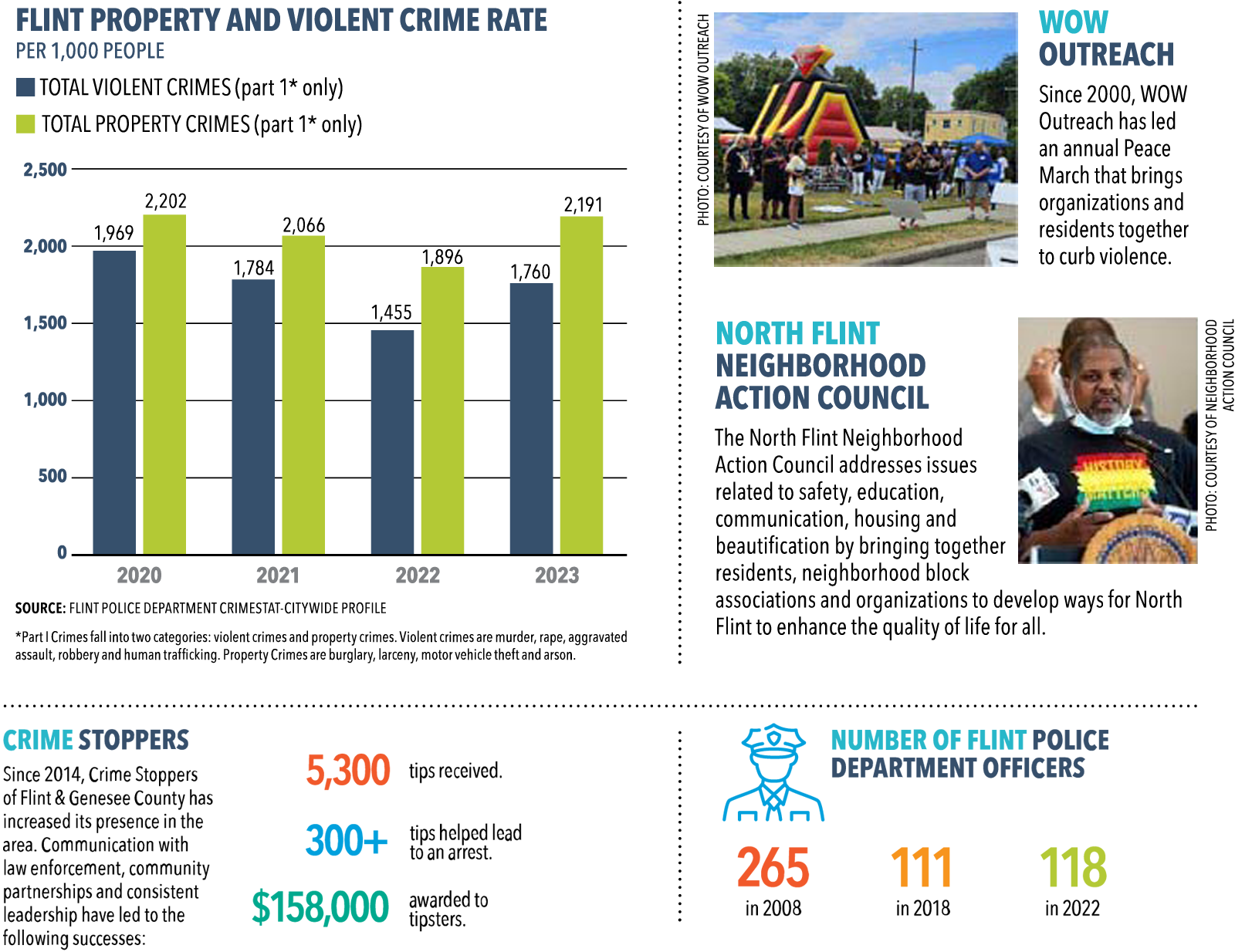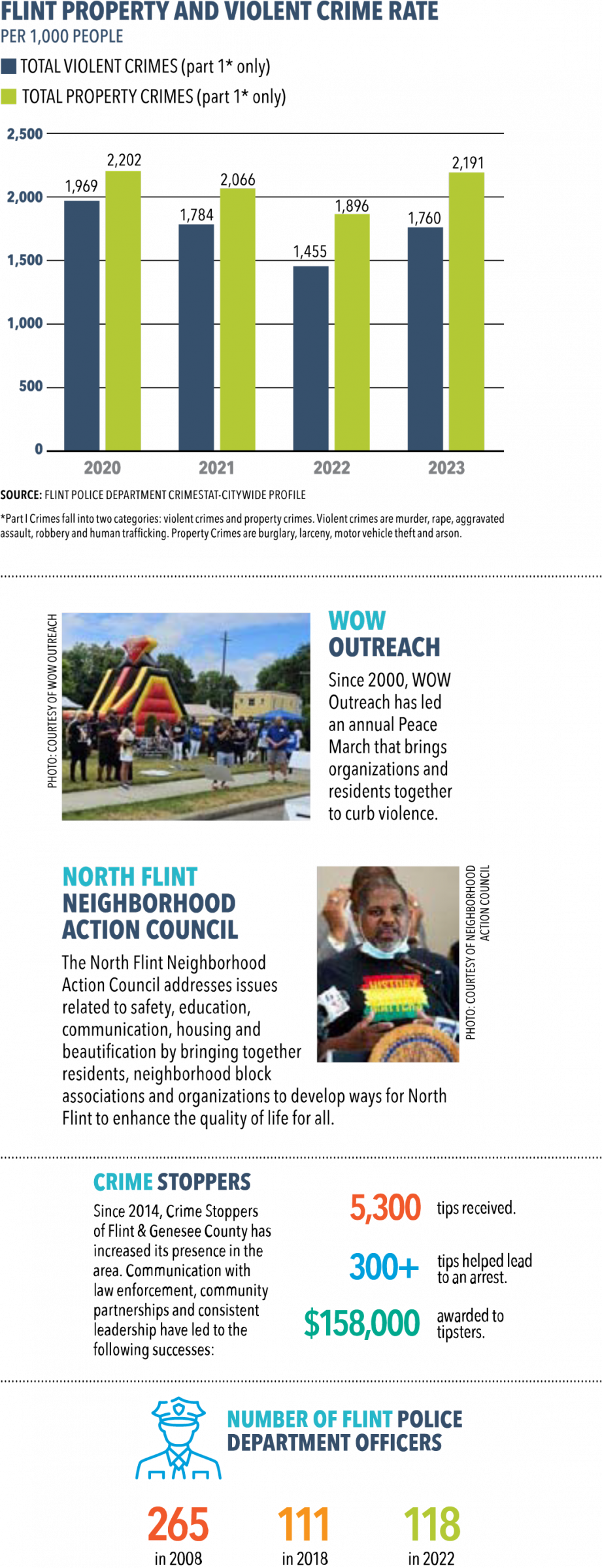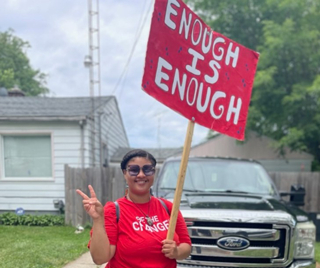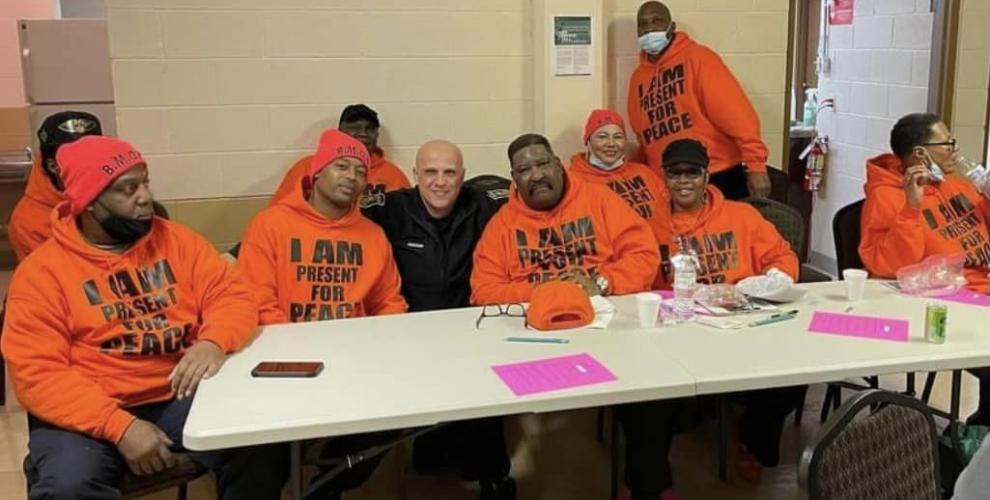“The Peacekeepers bring a unique set of qualities in helping to prevent violence through conflict mediation and de-escalation training with a variety of races, creeds, colors, religious beliefs, etc. We understand that peace is the highest achievement that can be achieved in this life.”
— Jalil X, spokesperson for Peacekeepers

THE ISSUE
Residents cannot enjoy a good quality of life if they don’t feel safe in their homes and neighborhoods. Since the first Focus on Flint survey, residents have ranked public safety among their top concerns. A significant decrease in the number of police officers in Flint over the last decade, national upward trends in gun violence and a population that has experienced high unemployment have all contributed to public safety concerns in Flint. Even as multiple public safety departments, community partners and residents have worked together to tackle this issue, it has been difficult to decrease overall crime rates.
THE RESPONSE
Ensuring public safety requires a holistic approach, as crime, blight and other safety concerns can’t be solved by one initiative or organization. Increases in both the number of officers and funding for law enforcement programs are necessary — but, alone, not enough — to decrease crime and community violence. A comprehensive approach to public safety also must include interventions that address violence indirectly, such as programs that focus on blight elimination, access to food, jobs that pay living wages and mental health services.
The Flint National Service Accelerator, housed at the United Way of Genesee County, has deployed hundreds of national service members throughout Flint since 2015 to help with some of these issues. For example, AmeriCorps National Civilian Community Corps teams come to Flint for approximately eight weeks at a time to board up blighted houses and work with residents to start block clubs and maintain neighborhoods.
Since 2022, the Mott Foundation has granted over $4.2 million to the city of Flint, Genesee County and University of Michigan-Flint Department of Public Safety to reduce crime. Grants to the city have included funding for overtime for officers, 24-7 Intelligence Center staffing, technology upgrades and a gun buy-back program. Funds to the county support Operation Arrowhead, led by the Genesee County Sheriff’s Department, which helps respond to police calls and proactively patrols nearly 30% of the city. Grant funds to UM-Flint increased the number of officers who patrol the downtown area by foot, bike and car.
Facts & Figures




DID YOU KNOW?
The Flint Gun Violence Prevention Network facilitated by the city of Flint and Community Foundation of Greater Flint includes many partners, such as local law enforcement agencies, nonprofits, foundations, colleges, universities and residents affected by violence. Network members support and implement programs and strategies to address gun violence in the city through traditional community policing approaches and nontraditional efforts, such as block parties and peace rallies that connect people at risk of engaging in violence with resources and mentors. The work is funded, in part, by a $1.5 million U.S. Department of Justice grant to the city.

